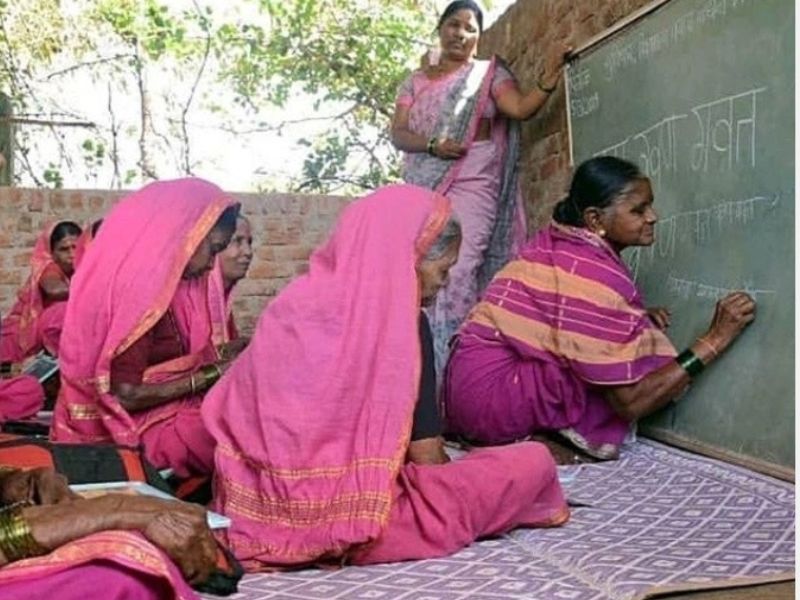Dipta Joshi
There is palpable excitement in the air as 30 students of Fangane village return from their trip to Mumbai, 120 kilometers away from their village in Maharashtra’s Murbad district. Invited as guests on ‘Kaun Banega Crorepati’, the popular show hosted by the country’s best-known celebrity, Amitabh Bachchan, the students belong to a one-of-its-kind school for grandmothers. Aptly named Aajibaichi Shala (grandmother’s school), the youngest student is 60 years old while the eldest is 94 years old.
“During a local festival that involved reading scriptures, several grandmothers from the community expressed remorse about being unable to attend school. We wanted the grandmothers from our village to fulfil their dream of attending school and also ensure 100 percent literacy in the village,” says Yogendra Bangar, a local zilla parishad (government-run school) teacher and administrator, Aajibaichi Shala.
The school, housed in a spare room offered by a local farmer, was up and running within a month. The Motiram Dalal Charitable Trust which works to improve the quality of education and literacy levels in 40 zilla parishad schools across the state collaborated with Bangar to provide necessities like the blackboard, students’ uniforms, bags, slates, and chalks.
“Changing societal norms have led to the thinking that the elderly are a burden to society. Our intention was to change that perception and instead inculcate love and respect for the elderly. The fact that these women continue to study despite their age is an inspiration to the youngsters at home. Many families have their grandmothers and grandchildren studying together at home. We would be happy if the school is replicated in other parts of the country too,” Dilip Dalal, president, Motiram Dalal Charitable Trust.
Pre-COVID, the school’s 30 grandmothers attended school for two hours (2 pm-4 pm) a day, five days a week. The students were taught to read and write the alphabet and correct pronunciations in Marathi, the state’s language besides basic maths and nursery rhymes. However post-COVID, the school has been operating only once a week on Saturdays.
“Unlike regular schools meant for younger children, we do not follow a curriculum and have no books. Our aim is to ensure our grandmothers can sign their names for official purposes and learn basic maths to calculate by themselves while dealing with shopkeepers. I actually spend more time revising the lessons since the grannies tend to forget what has been taught in the earlier class. They require individual attention since some have physical issues like impaired hearing and eyesight. At their age, their grasping power and understanding is slow and they all need extra help,” says Sheetal More, the school’s only teacher who studied till grade nine at the local zilla parishad school.
“We never imagined that going to school would lead to so much recognition and respect from everyone. It feels good to be appreciated by others and I want to see many more schools like this across the country. It would be an achievement for women from my generation,” says 73-year-old Sunanda Kedar, a student of the school.
The response to the school has been very encouraging and has led to an educational revolution in the village with the elderly men from the village keen on completing their class X exams at the least. Both Bangar and Dalal have been approached by elderly persons from neighbouring villages to start similar schools. The school has become the default community space where the grandmothers come together to conduct games, recite poems, and discuss social issues.
The founders now intend to initiate several skilling activities like making paper bags; rakhis etc., during the year to keep the grandmothers occupied as well as organise picnics for the grandmothers. That’s one more reason to attend school, say the grandmothers!
Also read: Azadi ka Amrit Mahotsav: Indian education system – then and now
